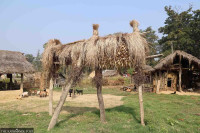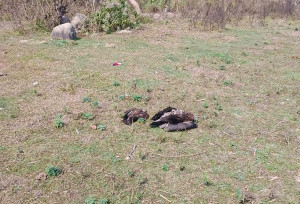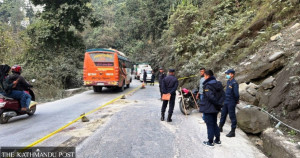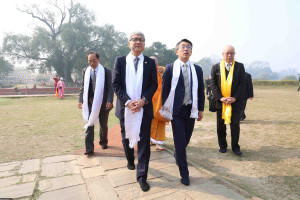Lumbini Province
No escape from poverty for marginalised Chidimars
This year’s budget has not addressed the crushing poverty of the endangered Chidimars, a community that remains marginalised for generations, struggling to manage basic needs.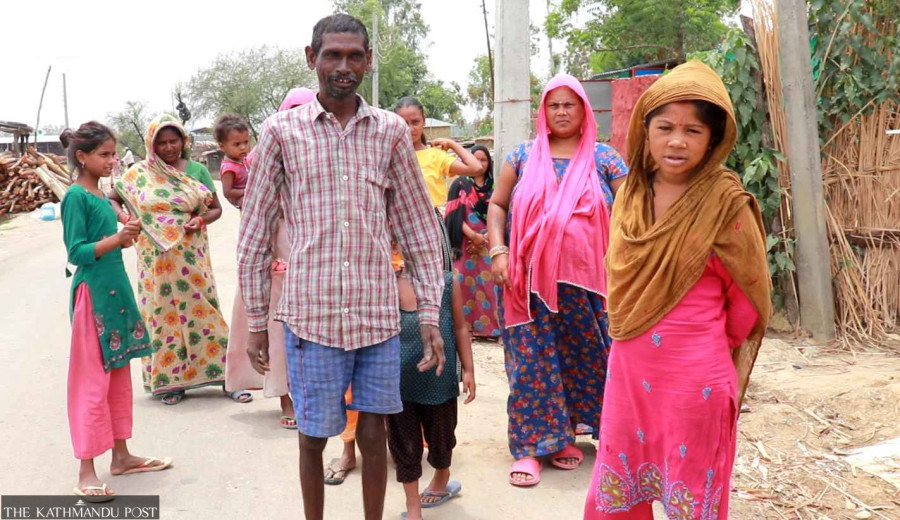
J Pandey
On May 29, the day the budget was made public in the federal parliament, Gita Chidimar, from the marginalised Tarai Dalit community, was worried about drinking water. The Chidimar settlement in Hawaldarpur, Kohalpur Municipality-14, does not have a single source of safe drinking water.
“There is no drinking water, no food grains, no land for farming,” says Gita. “When we work we get food to eat, when we don’t we starve.”
While Finance Minister Janardan Sharma was unveiling a budget of Rs. 1.793 trillion in the joint sitting of the Federal Parliament, the people of the Chidimar community were struggling for their basic needs. When asked what the budget announcement means to Gita, she says she doesn’t understand.
Koili Chidimar, another local of Kohalpur, says she has been travelling far from her settlement every day to look for cow dung, which she uses instead of costly firewood to cook food. “But these days no one gives away dung for free,” she said. “We have to travel far to find cow dung. There are many more problems we have been facing here.” Koili also lamented the budget. “I heard the government did not bring any plans or policies for Chidimars this year,” she said. “I don’t know how that will affect us since we have never felt the presence of the government in our lives.”
This year’s budget has not touched on the economic plight of the endangered Chidimars, who have spent three generations in search of food, shelter and clothes. The federal government plans to roll out the ‘One House, One Stream’ campaign in coordination with the state and local governments but the Chidamar community is not included on the list of beneficiaries.
As in the previous year, this year's budget has also stated that 100,000 houses will be constructed and distributed for the marginalised and endangered castes under the public housing programme. But Ramlakhan Chidimar from Hawaldarpur says three generations of his family have waited for a house they were supposed to receive.
“When we ask the authorities to build a house for us in accordance with the government plan, they tell us those who don’t have their own land do not get a house,” said Ramlakhan. “But if we had land and property, we wouldn’t have to beg with the government to build us a house.”
Different governments have come into power since the country adopted federalism in 2017, but the situation of the extremely poor and endangered people like Chidimar has not changed. So far, the government’s plans and policies have not been able to address the grievances and struggles of marginalised and endangered Chidimar.
The Chidimar community traditionally made a living by bird hunting. With changing times, their profession has disappeared but has not been replaced with any other income-generating means. Years of poverty have led to the lack of education, skills and therefore income in the community. Children hardly attend school and without the government’s intervention find themselves without an education.
“We never got the opportunity to learn new things that could help us make a living,” said Hamesh Chidimar of Belaspur, another Chidimar settlement in Nepalgunj sub-metropolitan-14. “The people in the government never take us into consideration when making plans and policies for the poorer marginalised communities.”
There are around 3,000 Chidimars living in different places in Banke district such as Nepalgunj, Shamshergunj, Indrapur, Holiya, Betahani and Kohalpur.
The newly-elected ward chairman of Kohalpur-14, Namba Bahadur Ale Magar, says he will include the Chidimar community in all development plans he plans to initiate.
“We hope to improve the condition of the Chidimar community in the next year with targeted programmes for the community members,” said Magar. “We will focus on providing health, education, shelter and food.”




 23.51°C Kathmandu
23.51°C Kathmandu
